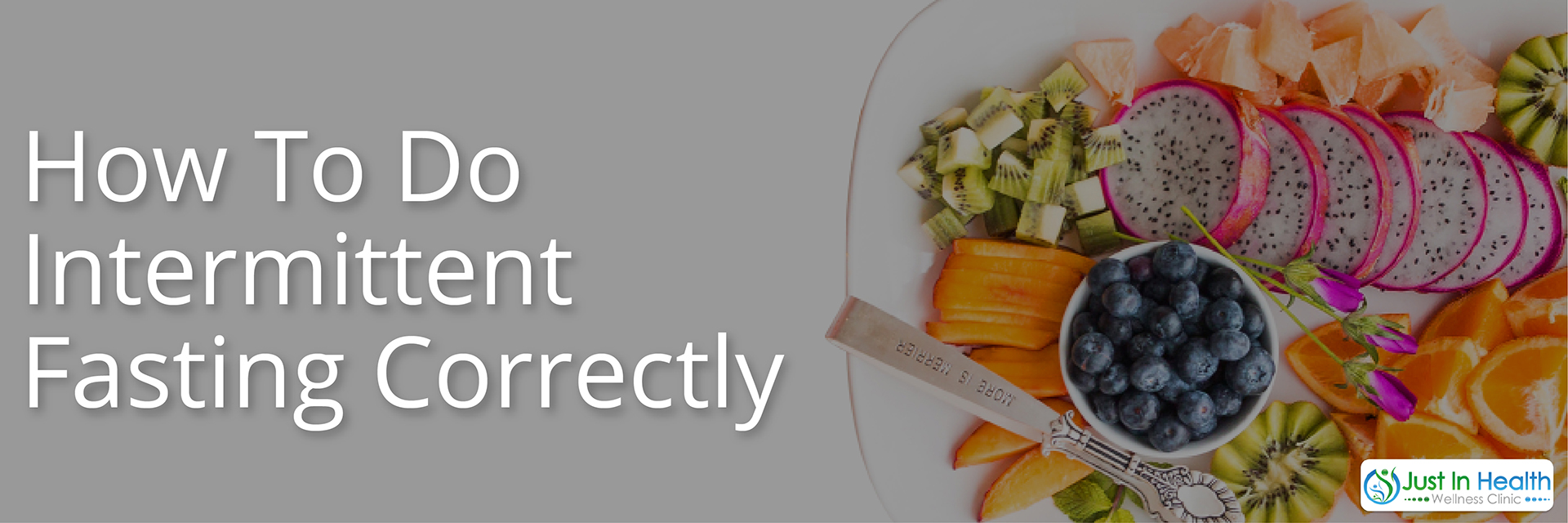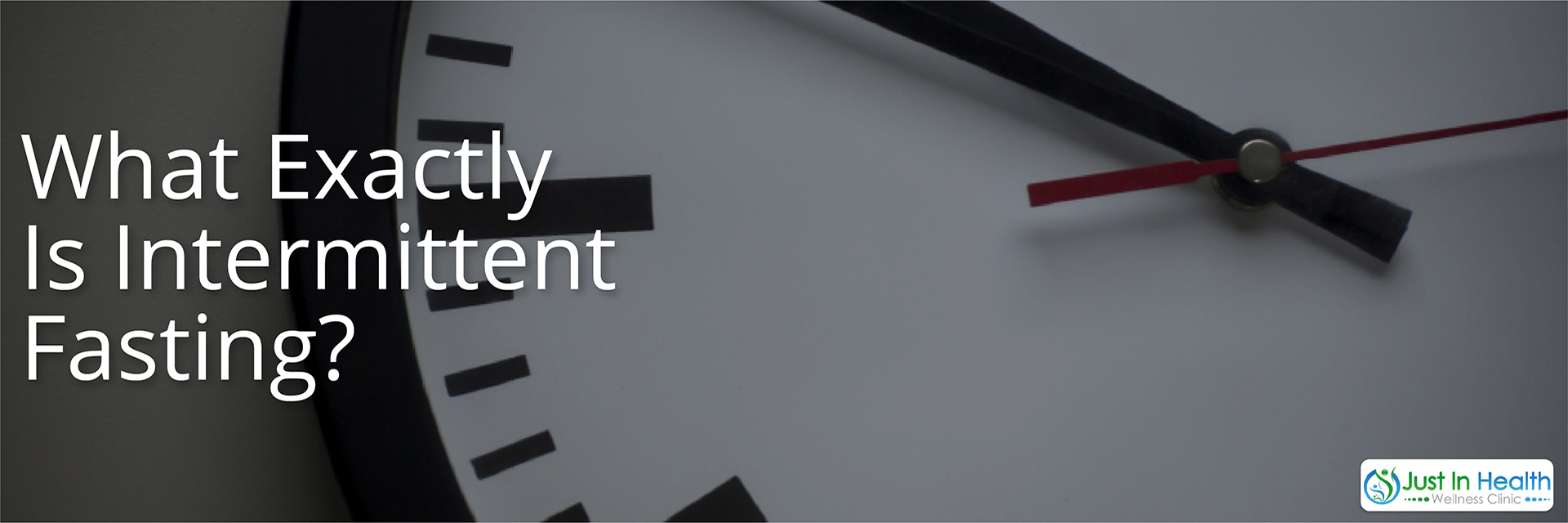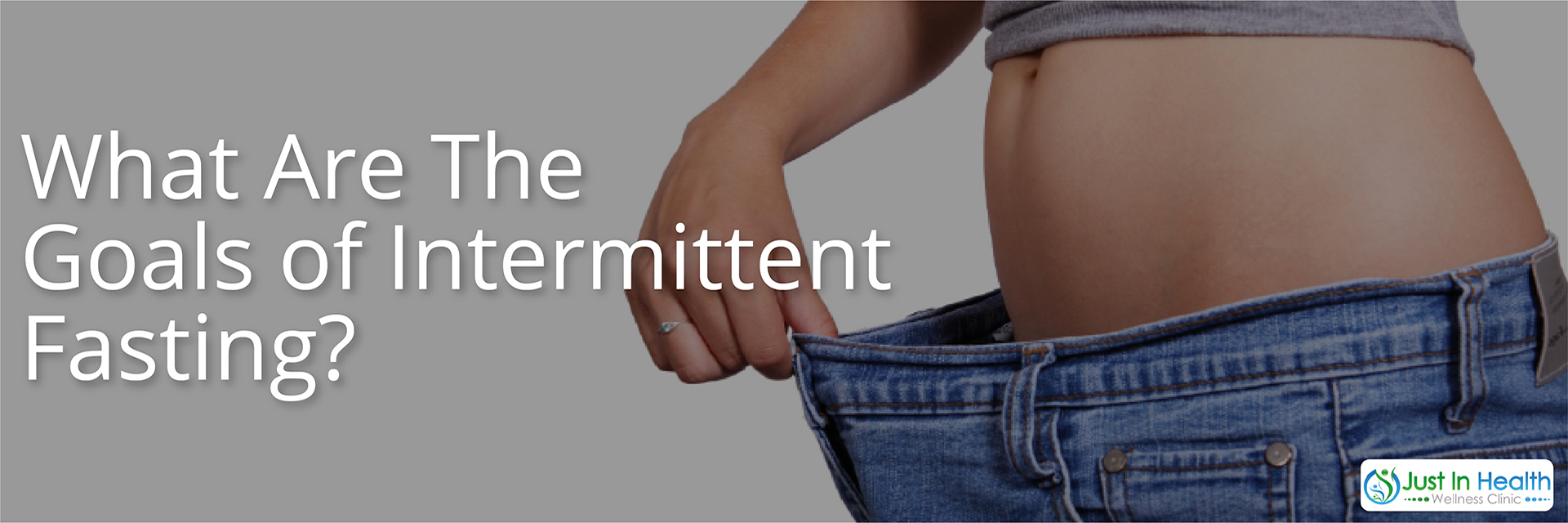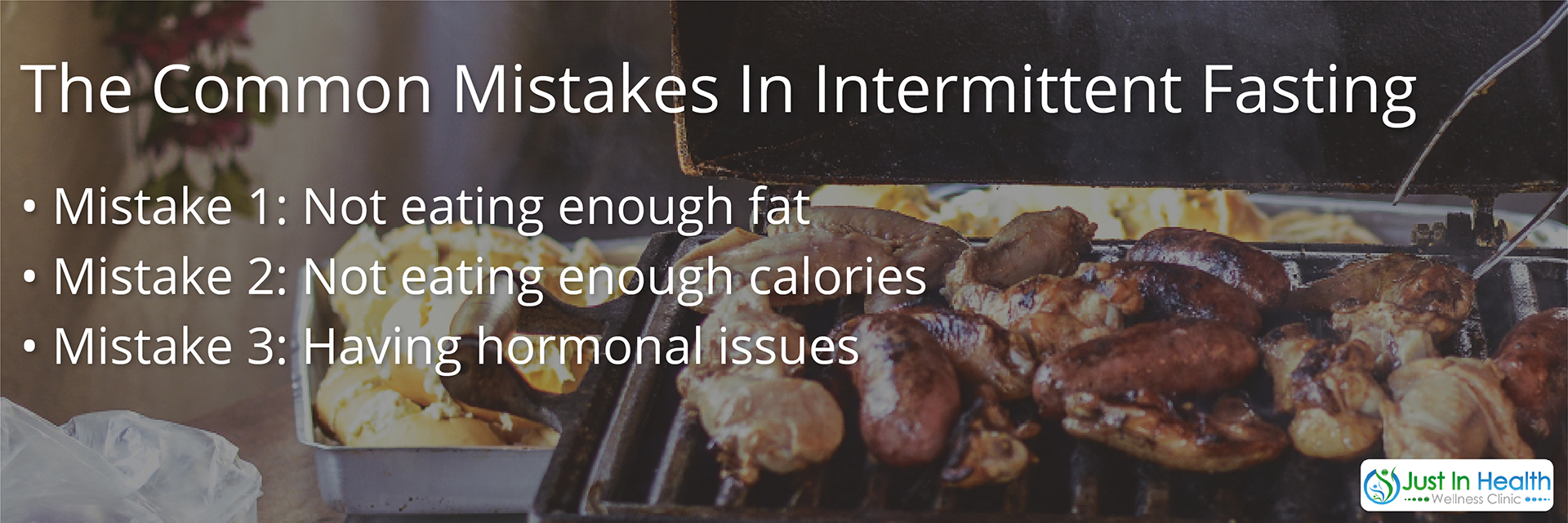

By Dr. Justin Marchegiani
Today’s blog post will be about Intermittent Fasting and how to do it the right way.
We’re going to talk about what your goals are and how to achieve them, why you’re doing it in the first place and how to actually do it. Along the way, we will also be discussing the common pitfalls of intermittent fasting such as ‘how do you know if you’re someone that may have physiological or hormonal imbalances that may prevent you from getting the full benefit and maybe even getting worse?’
So let’s dig in off the bat!

Intermittent Fasting is nothing more than timing up your food at certain times throughout the day and basically having a window in which you eat. That window can be anywhere between four to eight hours, and you close that window or widen it. You typically put that window in the last third of the day which is when you tend to be more insulin sensitive naturally.
Let’s talk about that window for example, instead of eating between 7AM and 8PM, that’s a thirteen hour window, we’re taking that and closing it down maybe to eight, or five, or four hours.

The first goal is we’re trying to increase lipolysis which will increase fat burning. The benefits that you get from intermittent fasting comes from that last meal — let’s say it’s at 8PM — all the way to the next day, now it’s twelve hours we’ve gotten so far. Then we’ll have, let’s say, until 2PM in the afternoon. We’ve added another four plus six, so we have eighteen hours of no food. So a lot of that benefit happens in that eighteen-hour time where we start increasing lipolysis.
The next goal is to increase cellular autophagy where our body starts recycling proteins. This also comes with the benefit of lengthening the telomeres.
And the third goal is to (HGH) and we’re making our body more sensitive to insulin.
Again, insulin and fat burning are inversely correlated. When our insulin is high, we can’t burn fat but when our insulin is low, we burn a whole bunch of fat. So the goal is to make ourselves more sensitive to insulin. So it’s like, the more sensitive your hearing is, people don’t have to yell or raise their voices for them to get your attention i.e. the pancreas doesn’t have to raise your insulin levels so the body can understand where to pull the sugar in and how to store the nutrients. When growth hormone goes up, that will help you put on muscle mass and we can combine this with good exercise allowing us to put on more muscle, which is great.
So the goals are all of these really good benefits above.
As mentioned in the example above, we get a 16-hour fast gig. So 8PM to 8AM — that’s twelve hours — and let’s say you fast until 12noon to 2PM, so you could have an easy 16 to 18-hour fast. With this you could have an 8-hour window for eating. If you want, you could extend the fasting from 16 to 19 or even up to hours. And depending on your choice, your window of eating could be anywhere between four to eight hours.
So in general, how we do it is take that window and we shorten it, so we’re trying to avoid breakfast. We could have a later lunch around 2 or 3PM. The key is we have to make sure that the window that we eat in is within the 8, 5, or 4 hour time frame. Personally, I like to eat later because I want to maximize the fasting time and if I eat a bit earlier that fasting time will be cut off so I would rather have that fast go really well.

Mistake 1: Not eating enough fat
Fat helps sustain your blood sugar and it’s going to prevent the ups and downs of what’s called reactive hypoglycemia. It’s like your pancreas pulls one way while your cortisol pulls the other way which is not the best thing for your hormones. So again, blood sugar comes up, insulin comes up. Then blood sugar goes down, and adrenals come and pushes it back up. Definitely not the best combo. That’s why healthy fats are good. So one of the things that you get with the fast is you’re not eating. And when you’re not eating, you’re not pumping out insulin.
So insulin comes out most with carbohydrate, it comes out a little bit with protein, but very little with fats. So when you see people saying “fats are bad for diabetes,” they are typically talking about fettuccine alfredo — a whole bunch of fat with a whole bunch of carbs, right. But if we’re focusing on fat by itself, healthy good sources of fat like coconut oil or avocado, then you’re okay as long as you’re not adding a whole bunch of sugar and carbs with it.
Mistake 2: Not eating enough calories
You actually don’t want to drop your calories so if you need 2,000 calories for the day, you got to make sure you get 2,000 calories in that eating window. So let’s say in an 8-hour eat window, you could have three meals in there. Maybe at 2 o’clock, a 5 o’clock, and an 8 o’clock meal. With the smaller windows, you could eat at one end and eat at the other end. Again, the benefit comes from the 16 to 18-hour fast.
Mistake 3: Having hormonal issues
If you have thyroid issues, blood sugar issues, adrenal issues, and female or male hormone issues then cutting out those meals may not be the best thing because you already have a stressed out physiology. So not having those nutrients come in at the morning time or the early afternoon may actually be a stressor on the body. Not getting enough calories is definitely a stressor, this is the biggest pitfall. People just don’t eat enough so if they’re having two meals, they have to realize, “well I’m only having two meals, I have to eat 50% more on each meal because if not, I won’t have enough calories.” So you got to remember that. So if you have hormonal issues like blood sugar, thyroid, Hashimoto’s, active gut, or any digestive issues, then it’s not a good idea to do fasting.
My advice is get healthy first, then this is a great modalities of trying on and fine-tuning things later. Also you could do a protein sparing fast in the morning where you eat a whole bunch of fat where you eat foods like butter coffee, MCT, and such as long as you just avoid protein. Then you kind of have this modified protein-sparing fast where you’re getting all the fat in so the insulin stimulation is very small. That’s a modified way you can tweak it so if you’re not ready to skip breakfast and lunch, you can do a protein-sparing fast in the first half of the day and then bring in the other full meals later on at night.
So again, get your hormones dialled in. If you have an active gut issue, autoimmune issue, adrenal issue or male or female hormone issue, you want to get that fixed first. So if you need help with that, click here to schedule a consultation with myself.
So this is Dr. J signing off. I hope you enjoyed this post!